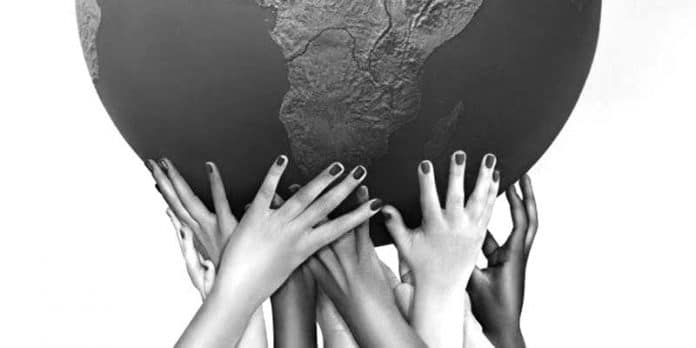Speech by Mwalimu Julius K. Nyerere, Chairman of the South Center at the North / South Sustainable Development Conference Berne 26 May 1998
Are International Social Standards Possible?, Berne, 1998
Mr. Chairperson, Honorable Members, Friends.
First and foremost, i am very humbled and thankful for welcoming me to this summit. I appreciate the opportunity to share with you my personal views on issues that are being worked on for ‘sustainable development’ that can be increased. I say “personal opinion”, because although I was invited as the Chairman of the South Center I do not speak as a representative of the member state. I speak only as an
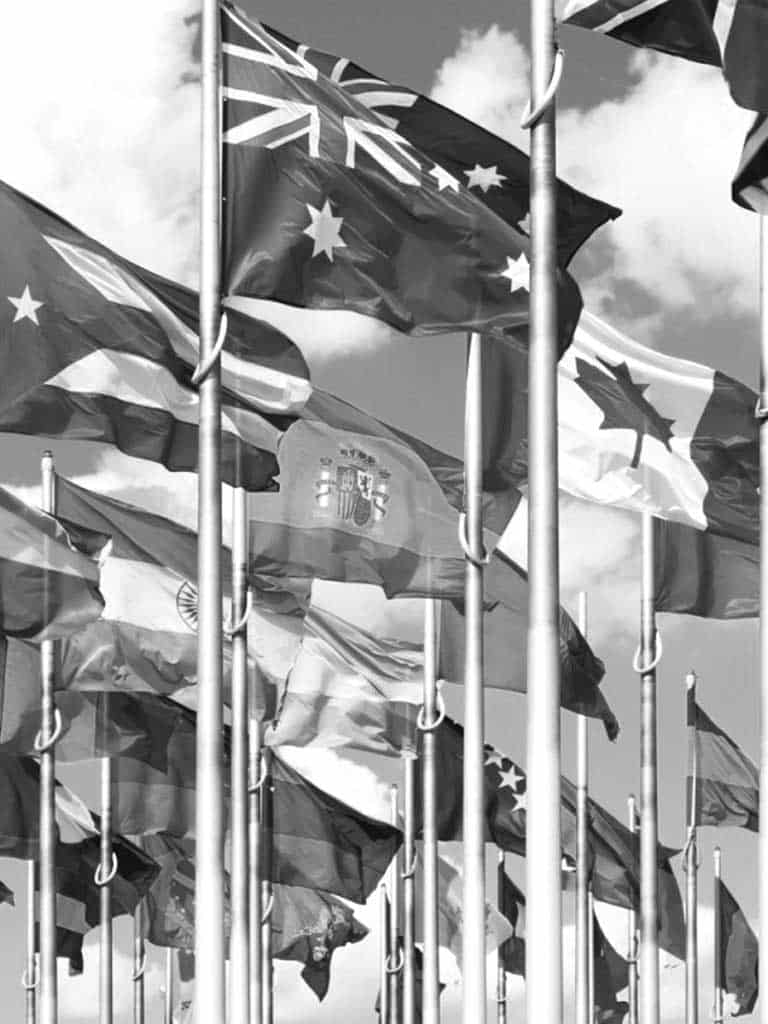
individual with some experience of the problems of developing countries.
The topic I was asked to address was “Are international social standards possible”, my answer is NO! International Social principles are possible; but international social standards in accordance with those principles are not possible. There is something like 190 different nations in the world; each one is different in the geography of nature and natural resources, in each country there is a unique combination of history, religious beliefs, cultures, and social structures. Social groups interact but still have different value systems. And between countries and within countries there are not only different levels of wealth – there are differences even in the way people measure wealth.
When you have that kind of cultural diversity and resources, on what basis should the international standard be worked out, and who will decide on it? The assumption is that what we are thinking of is the integration of Western concepts and standards. But why? Such concepts and social standards are based on Western history and culture, in (and rapidly changing) state-of-the-art technology, and in standards of personal and social consuming that are not international and in which world resources cannot be maintained on a global basis.
A person’s ‘social income’ is closely related to “his or her standard of living” – “his or her social status”. Once a person’s food and shelter is resolved through personal income, then things like health care delivery, access to clean water, access to education, and security should there be illness, unemployment, or old age – all of these factors are involved in a person’s ‘standard of living’ because they are essential to his or her well-being and future prospects. Of course every social unit (whether small or obsolete) makes provision for “social services” in its design, such as ensuring people do not die of starvation or adverse weather conditions. In addition, – as noted at last year’s Social Conference – social, economic, and political issues are all intertwined; nothing can be considered unique. All is relevant to human life; all are included in the Universal Declaration of Human Rights.
However the need to include ‘social issues’ in international trade negotiations is not made in the context of a comprehensive approach to improving the human condition. On the contrary, demand hides the direction of self-defense in developed North countries. It is justified in claiming that in order to have complete justice and freedom in competition there has to be “equal opportunities” for participants in international trade: all countries, for example, must have equal labor costs. This is a subtle argument to shut down Northern markets for so-called cheap goods from the South; but it has been shown to be fighting for the rights of Southern workers!
This argument usually attracts business Communities in both developed and developing countries alike, as every employee wants more pay and better working conditions. The International Confederation of Free Trade Unions (I.C.F.T.U) has therefore shown its support for the idea;
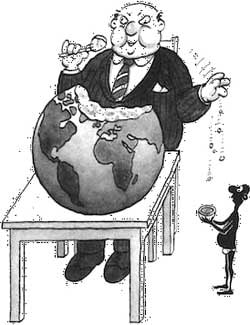
would like a better working environment for all – or at least ensure that, once it is successful, good wages and working conditions are not reduced by employers on the grounds that globalization makes unemployment the only alternative to wage cuts.
Until now, the process of globalization has been left to “market forces!” All kinds of current international and or national laws – regulations or tariff and others known as “barrier” to trade are under siege. However, in spite of this, we now have this call for ‘national social standards’ to be a matter of applicable international law!
More important than the theoretical differences, however, is the fact that it will not be possible for poor countries to meet the cost of internationally accepted ‘social standards’. These countries may sign any agreements; they would (and probably would) want to make sure that all their employees receive the same wage as those in Switzerland, for example. But that would be a dream. Because social standards (by any definition) always depend on the wealth of the country. The poor of a nation cannot be upgraded by forcing their Government to sign an international treaty that prohibits or ignores the reality of poverty!
Domestically, or in any other sector of the economy, the problems of poverty – that is, of ‘unequal social standards’ – can be addressed through redistribution tariffs, or at least a minimum of other government measures. Wealthy people or States / Regions are taxed by the appropriate Authority, and the proceeds are used by the Government to provide everyone with a primary level of education, health care – and possibly income. The transfer of such resources from the rich to the poor within a nation is a legal obligation; not dumped to philanthropic motives!
While economic unity seeks to set common standards among its members, its fundamental agreement does not simply require that every member of the State strive to meet those standards. It also places other responsibilities on members that will enable poor members to do so. For example, rich European Union countries have a legal obligation to pay to the European Commission a certain amount of rates, or a proportion that will be transferred to the struggling Member States of the richest countries. This is not considered a charity; is a legal obligation associated with membership.
Under the unrelenting pressure of boundless globalization, the world becomes a Free Market. That is what developed countries want. And to avoid trouble from their employees while facilitating the globalization process, they now have this idea of claiming international social standards based on their own abilities. And this means that by legal agreement, economic sanctions would be imposed on any country that fails to implement such standards within their country.
However, the idea that rich countries should be legally barred from helping the poor meet such social standards has been rejected. Proposals for international tariffs of any kind, for whatever reason, are dismissed as ridiculous. In fact, poor countries face so much pressure that they even reduce tariffs on domestic redistribution. Under international conditions, it becomes increasingly difficult for them to tax their rich to improve the social standards of their poor.
It is absolutely impossible for a poor country to meet social standards set at the level set by the rich, however, it is now generally accepted.
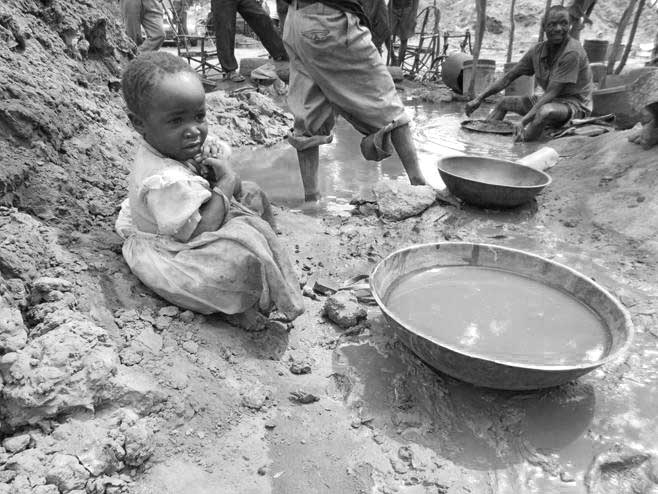
The requirement that labor standards be a factor in the business policy has been changed. It has now been suggested that all countries should implement ‘basic working standards’. This requires the recognition of freedom of association and collective bargaining, the abolition of child labor and forced labor, and the banning of discrimination in employment. Most of these requirements are already included in International Labor Organization (ILO) Agreements or other international agreements that have been accepted by almost all countries.
However, violations of these basic working standards often occur. The country’s failure to implement the signed Convention is usually related to its national poverty – and the simultaneous existence of significant income inequality at the national and international levels.
Within democratic countries (developed or developing), the needs of the poor or less affluent cannot be ignored by the indifference of government or ruling classes. Even in a dictatorship the rulers see the need to respond to violent protests from their people. The same is true within the Community of Nations; if the Society is to maintain the need for some kind of agreement between rich and poor member states they are required to support relatively small members.
In the world as a whole, however, there is no international democracy or any other powerful force to which the poor can direct their protests. For example, when copper prices fall by 50 percent per week, Zambia’s national income drops like a stone; its workers will march (perhaps violently). But they are directing their anger at the Zambian Government, which has absolutely no power in this matter. What else can employees do? They cannot influence the decisions of this incomprehensible so-called international ‘market’, even though poor Zambia has lost its resources to rich countries. The poor of Zambia have no influence in this matter. But the Zambian government has no influence either. Wealthy countries that have benefited from the change in copper prices continue their journey happily – and without anyone having the authority to force them to payback from some of their profits.
When the value of the Indonesian rupee plummeted for reasons not fully integrated with the foundations of the Indonesian economy, public outrage was directed at the Indonesian Government. The unknown global financial market that has led to this process was not to blame.
It should be noted that Southern Governments are not always overthrown because they do not care about the plight of the poor in their countries. Often the popular protests that lead to the resignation (or overthrow) of the southern government are caused by the International Monetary Fund (IMF). We used to call them the “International Monetary Fund (IMF) Bread Riots”; people are condemning their government because it has failed to meet demands from the International Monetary Fund (IMF) either to meet several international standards set by the rich in the North, or to reduce the living standards of the poor even further. Representatives of the International Monetary Fund (IMF) who bring such policy requirements – and the threats that accompany further sanctions against the country – make sure they return to their headquarters before the policies they claim are set in motion. People express their anger toward their government, and in doing so they undermine their standard of living!
The richest and most powerful countries in the world are preaching democracy to poor nations and, if necessary, are responsible for enforcing sanctions against those countries that they have designated as not democratic or that act against human rights. But these preachers of democracy at the national level are actively fighting against any form of democracy at the international level.
As a result, international organizations or institutions in which the one-vote rule of the country applies were denied any kind of power. The most powerful organizations and institutions are those in which the one-dollar voting principle applies. Hence the weakness of the UN General Assembly and the United Nations Conference on Trade and Development (UNCTAD) and the United Nations Educational, Scientific
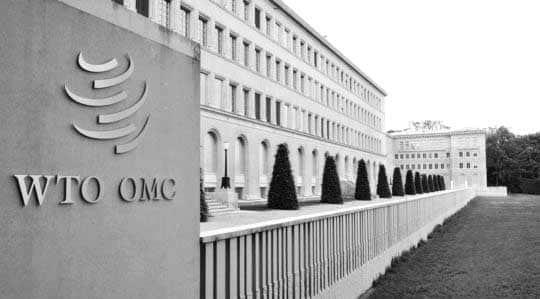
and Cultural Organization (UNESCO); it brings to the forefront the power of the UN Security Council, the International Monetary Fund (IMF), the World Bank and the World Trade Organization (WTO) where there is no hypocrisy of democracy.
The reality is that all international social standards are impossible, and certainly would not be fair, unless they are connected, and are conditional against, the equitable implementation of a deliberate, effective, and consistent internal poverty alleviation plan – national and internationally. It is impossible for all human beings – men and women – to be given equal without respect and dignity through the functioning of all economic, social, and political structures.
In addition, before justice could exist there was no question of having ‘international social standards for all’ (whatever interpretation it may have), the equality of all independent nations must be recognized not only by name and theoretically; but it must be the real basis for all economic, social and political ties between states. And from recent events it is quite clear that International Social Standards will not be possible when the global monetary movement has remained unplanned and uncontrolled. In fact, international social norms are incompatible with unparalleled competition in the International Market.
For if there is no proper barrier against the rich and powerful then their interests will prevail, regardless of the needs (let alone the interests of the poor).
In this regard there is animosity close to the South with the proposal that ‘Social Cohesive Social Standards’ are introduced in the rotation of the World Trade Organization (WTO) instead of (or similarly) the International Labor Organization (ILO). Compared to the World Trade Organization (WTO), the International Labor Organization (ILO) is democratic in structure, and does not seek to takeover a national authority of any government.
Developing countries see no need for international reform beyond the existing ones, and the current mandate of the International Labor Organization (I.L.O). Furthermore, past experience in some areas has shown that if the World Trade Organization (W.T.O) is authorized to exercise its authority in this matter it will be used exclusively against developing countries – and yet not with any steadiness. They will be another tool to use against a developing (democratic or other) country that is trying to determine its internal policies in any area, and implement them. It does not take much thought to see how such power in the hands of the World Trade Organization (WTO) could be used by the United States (USA) against Cuba; it will take a lot of thought, however, to believe that such power could be used against the United States (USA) on any basis!
Solidarity
Mr. Chairman: A word on solidarity.
In this fight against the oppression of Poverty and the powerlessness of the poor, the solidarity of the people of the North – as well as the people of Switzerland – is essential for sustainable development. It is true that the poor in developing countries will not be able to achieve a better standard of living without solidarity from the people of the North who believe in justice and equality but themselves are not poor, and who have power in their countries. These are the people who get airtime in the Northern media, who have the democratic power to influence the policies of their governments, who can influence the actions of international organizations located in the North.
This conference of non-governmental organizations in Switzerland is a comfort and support to the world’s poor. I urge you to continue with the work you are doing, and to increase it. For the world is One. Globalization is the reality of modern life. Together we can turn it into a force for good – for the benefit of all the people of the world. IT CAN BE DONE. DO YOUR PART.
Thank you.
For more Nyerere speeches click here!

























